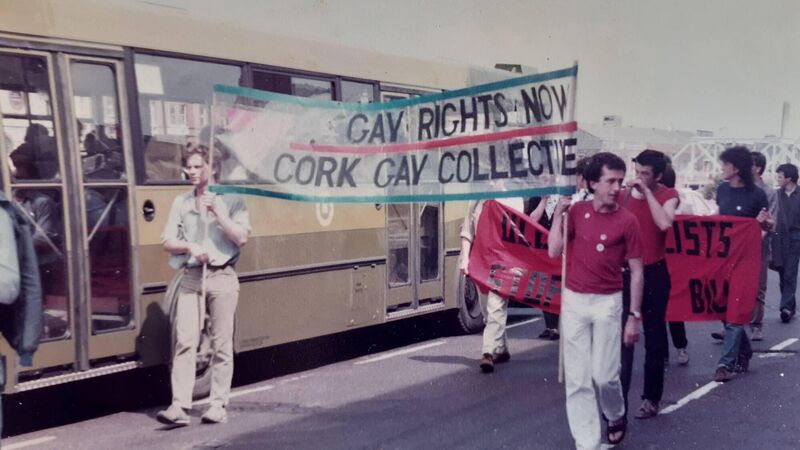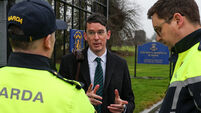'I was a criminal until the age of 37': Gay activists on quashing of convictions for homosexual sex

Kieran Rose, right, and fellow activist Laurie Steele, left, lead an LGBT rights march in Cork in 1984.
For Kieran Rose, the coming legislation that will allow the government to disregard old convictions is “like the end of an arc of history,” even if it has taken 30 years since decriminalisation for it to happen.














